Christmas time is filled with traditions and quality family time that revolves around food. For those with multiple food allergies, it can be a tough reminder of everything we cannot eat, and we may feel left out of certain experiences. That is why I was determined to make these allergy-friendly Christmas cookies.
Christmas is important to me and I did not want my son to miss out on fun childhood memories due to his multiple food allergies. So, last year we started the tradition of making Christmas cookies together. It was not easy to think of a recipe with the few foods he can eat but I am proud to say that I made it work!
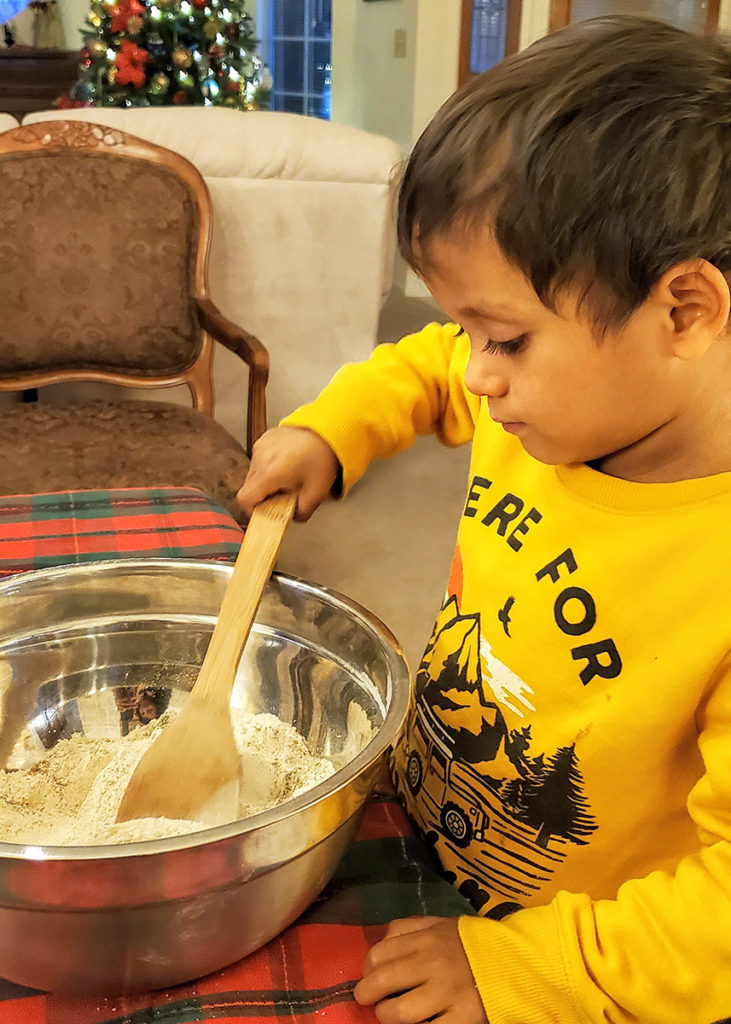
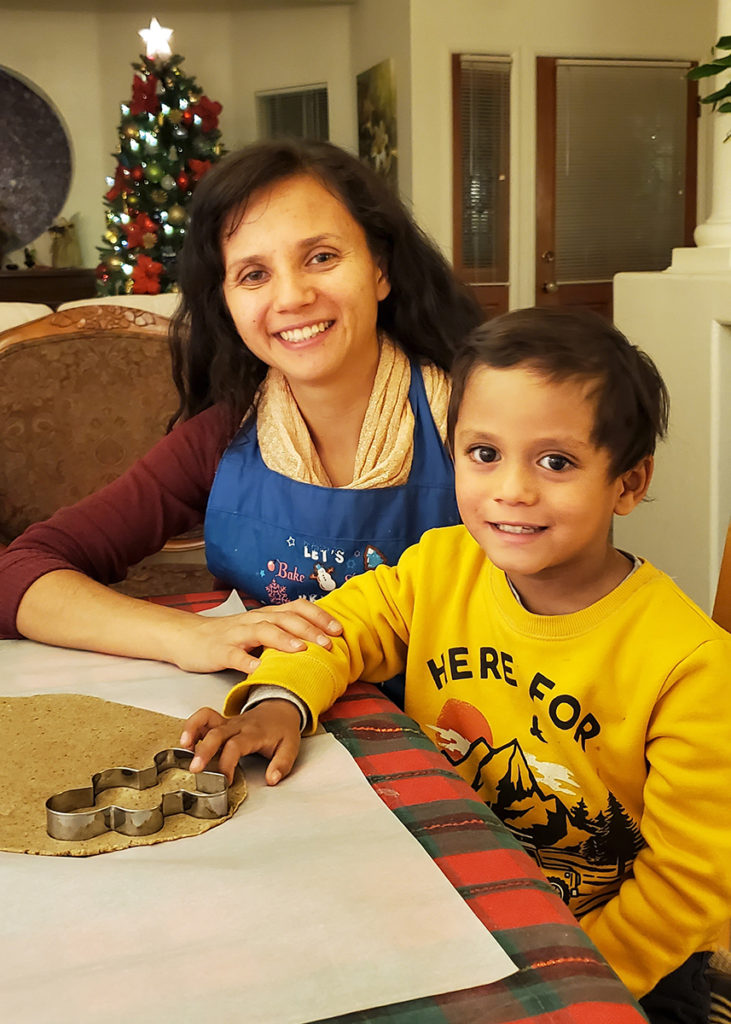
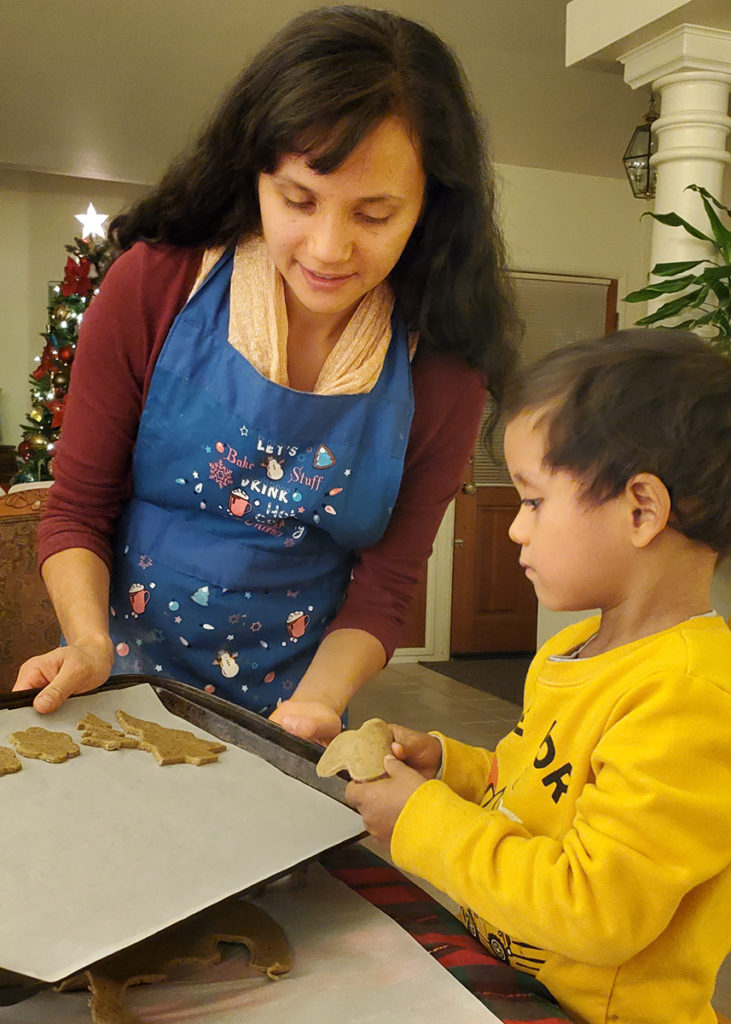
Allergen-free Christmas Cookies
These cookies are free of dairy, eggs, nuts, corn, soy, gluten, and grains. Unlike conventional cookies, these Christmas cookies are filled with healthy, nutritious ingredients. For the flour, I use buckwheat and arrowroot powder; instead of egg, applesauce and ground flaxseed; in place of butter, coconut/sunflower seed butter; and finally, to keep these cookies low-sugar and healthy, I used coconut sugar and stevia to sweeten. The applesauce also adds sweetness.
I was very surprised at how good these turned out! They are chewy and delicious. We love them. They are by no means as sweet as regular sugar cookies but we actually like that about them too. If you have more of a sweet tooth however, you may want to add more coconut sugar, stevia, or maple syrup.
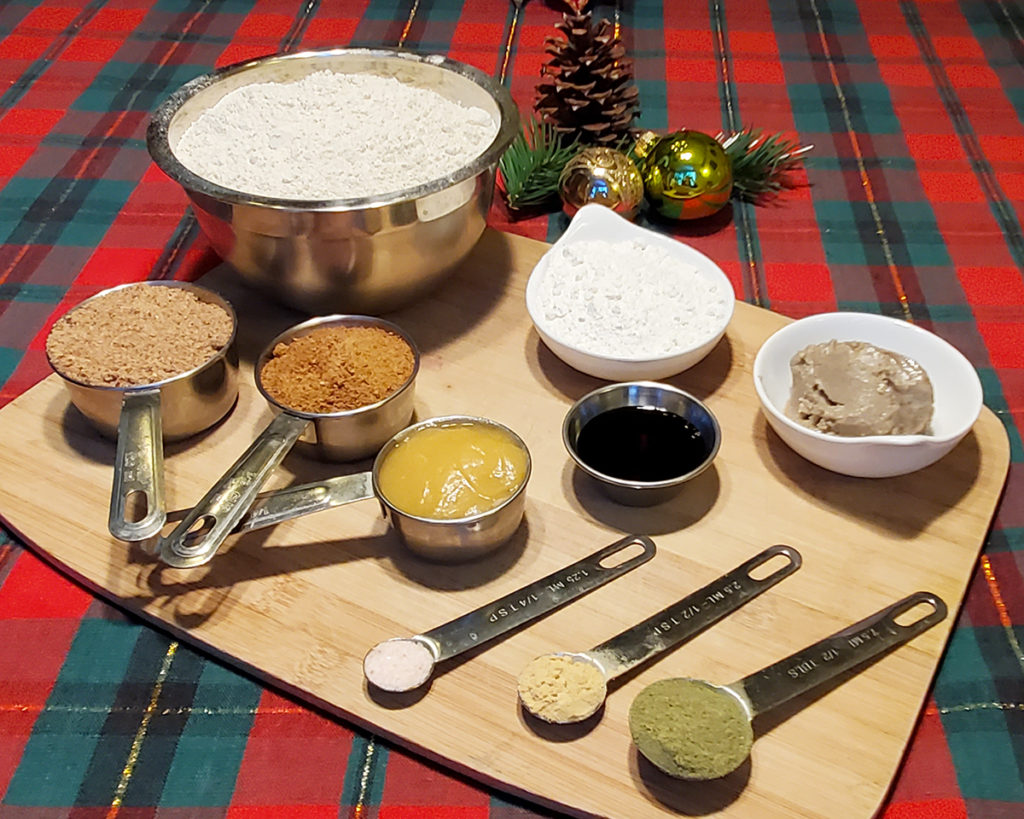
The Christmas Cookie Dough
Conventional cookie dough should not be “overworked” and needs refrigeration before shaping the cookies. However, that is not the case for this dough.
When you use wheat flour, kneading the dough activates the gluten making the dough grow like a bread, which you do not want for cookies. However, since we are using gluten-free flour, you can mix and knead all ingredients until you have the desired consistency without risking overkneading. This cookie dough will also not expand because we don’t use any baking powder or egg (hence it does not need to be refrigerated).
In fact, you want the cookie dough to remain room temperature, not cold. This will make it easier to roll out for cookie cutting. I recommend cutting the dough in 3 sections and work on one section at a time. Keep the remaining dough covered with a cloth to prevent it from drying out and getting cooler.
I recommend you roll the cookie dough in between two sheets of parchment paper. This will keep the dough from sticking to the rolling pin. Roll it out to about ¼ of an inch thick. You don’t want them any thinner than this or else they will become hard.
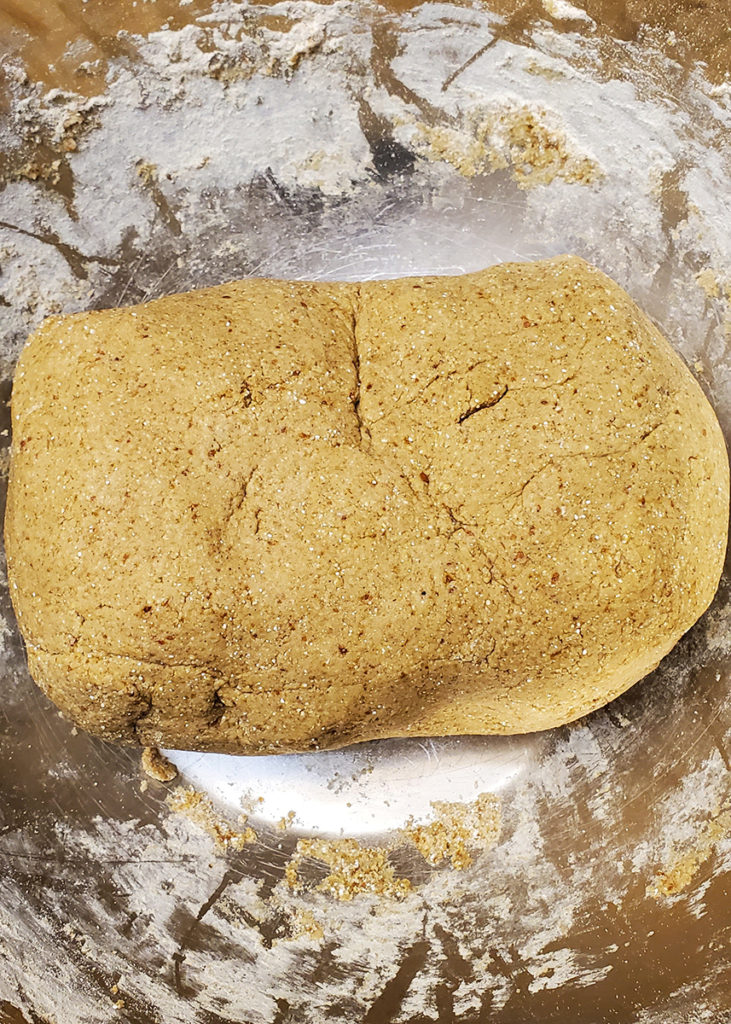

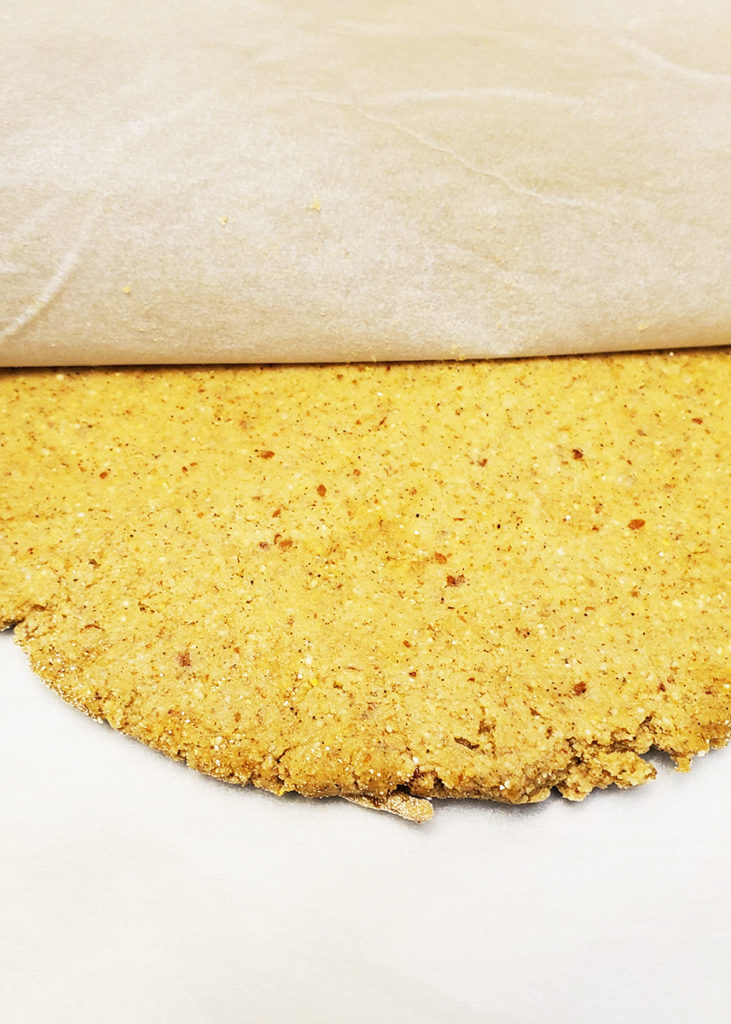
Decorating the Christmas Cookies
Because I want to keep these cookies healthy and allergen-free, I don’t use any icing to decorate them. However, you can get creative and use other things to embellish the cookies. You will want to decorate them before you put them in the oven.
To add designs, we used a comb to make lines and dots. Blend blueberries and strawberries to add some natural color. Shredded coconut, date paste, seeds, and carob add additional decorations. Get creative and see what you find in your kitchen to decorate the cookies.
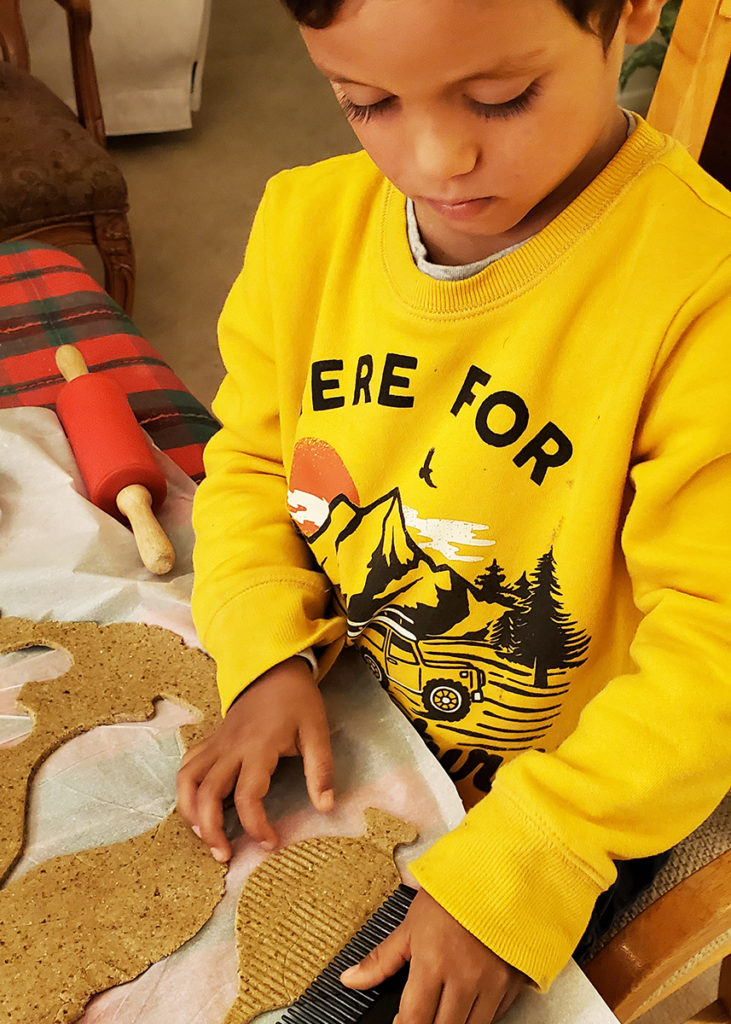
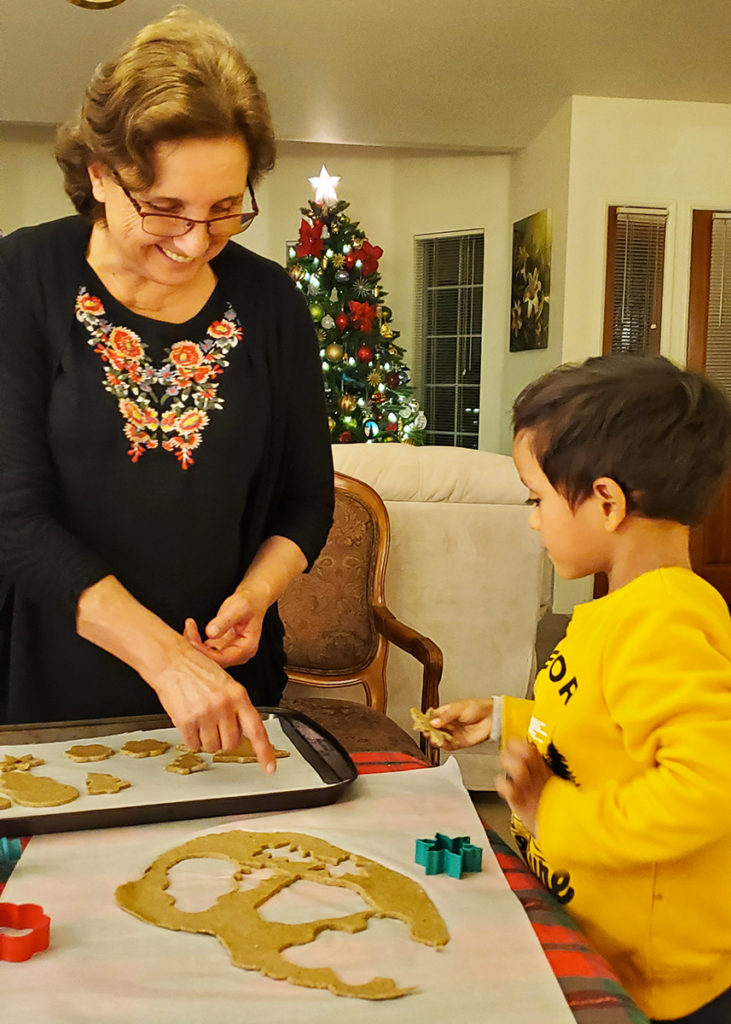

Storage
These cookies are good for up to a week. You can keep them in the fringe or even the freezer to extend the life of the Christmas cookies. Because these cookies don’t have any baking soda, gluten, or egg (ingredients that help baked goods rise), they are very dense and will become harder when they are cool. You can warm them up in a toaster oven for a minute to soften.
Allergy-Friendly Christmas Cookies Recipe

Ingredients
- 5 cups sprouted buckwheat flour (see notes)
- ½ cup arrowroot powder
- 1/3 cup coconut sugar
- ½ tsp. ginger powder (optional)
- ½ tbsp. stevia powder
- ¼ tsp salt
- ¼ cup coconut/sunflower seed butter (see notes)
- ¾ cup apple sauce
- 5 tbsp. vanilla
- ¼ cup ground flaxseed
- ½ cup water
Instructions
- Make a flaxseed egg by mixing ¼ cup ground flaxseed with ½ cup warm water. Whisk with a fork and let sit until it thickens into the consistency of an egg.
- Mix all dry ingredients in a bowl: buckwheat flour, arrowroot powder, coconut sugar, ginger powder, stevia powder, and salt. Stir well using a spoon or whisk.
- Mix all wet ingredients in another bowl: softened coconut/sunflower seed butter, apple sauce, vanilla, and flaxseed egg.
- Whisk the wet ingredients and add the dry ingredients slowly as you whisk until all ingredients are well mixed.
- With your hands compact the dough together creating a ball and divide it into 3 sections.
- Grab one section, place it on a parchment paper, and place another parchment paper on top. This will prevent the dough from sticking to the rolling pin.
- With a rolling pin, roll the dough to ¼ inch thickness and use your favorite cookie cutters to cut the shapes.
- Decorate your cookies with seeds, coconut, blended berries, dates, or create lines and shapes with kitchen tools.
- Place cookies on a parchment paper and bake at 350 °F (180 °C) for 8 minutes.
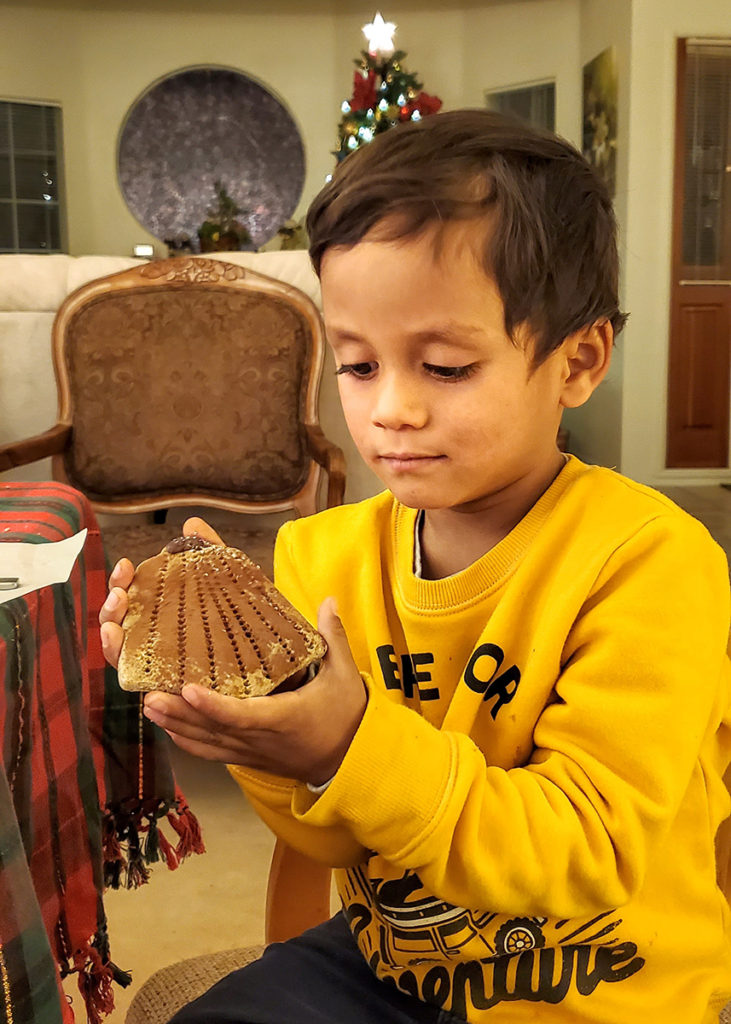

Notes
- Buckwheat Flour: I make my own sprouted buckwheat flour by soaking, sprouting, dehydrating, and grinding the buckwheat. Store-bought buckwheat flour uses the whole buckwheat including the shell, and it is not soaked or sprouted. This can cause inflammation and digestion issues for those who have gut problems. You can buy sprouted buckwheat flour here.
- Butter: I make my own coconut/sunflower butter by processing shredded coconut and dehydrated sunflower seeds, 1:1 ratio, with 1 tsp of salt. Recipe from the Autoimmune Plant Based Cookbook. If you are not on an oil free diet, and don’t have time to make this butter, you could use ¼ cup coconut oil.
- Replacements: You can to replace the buckwheat flour with quinoa flour; apple sauce with pumpkin puree; and as mentioned above, the “butter” with coconut oil.


